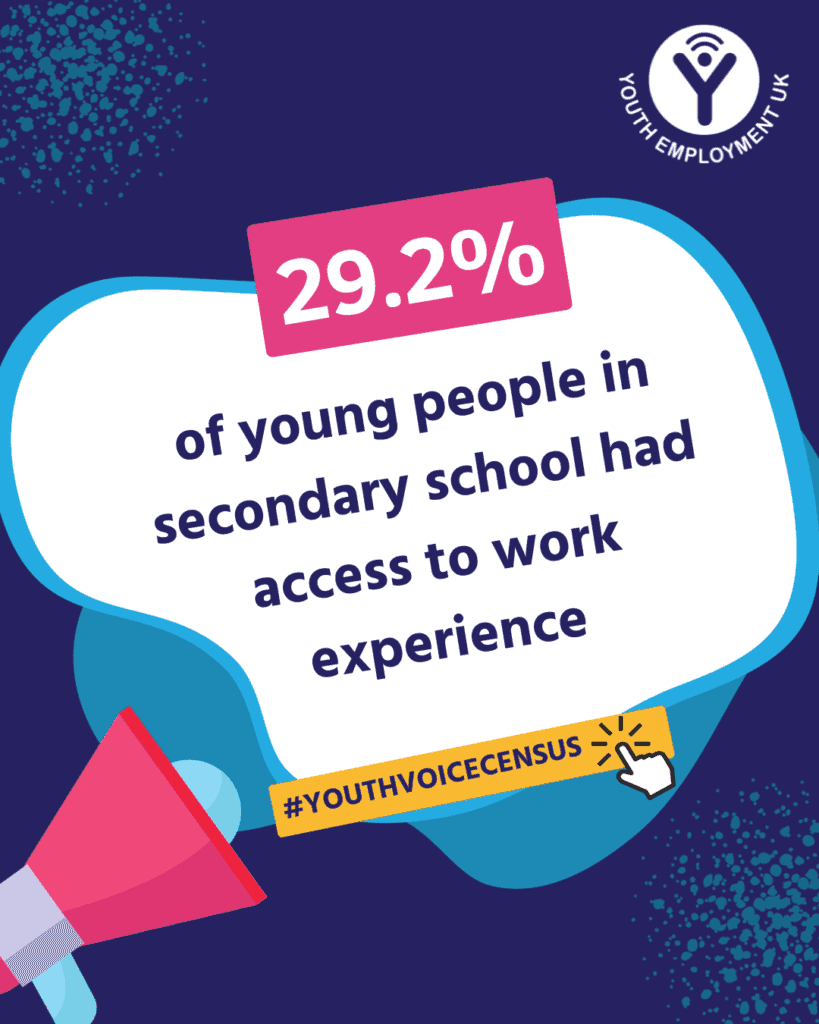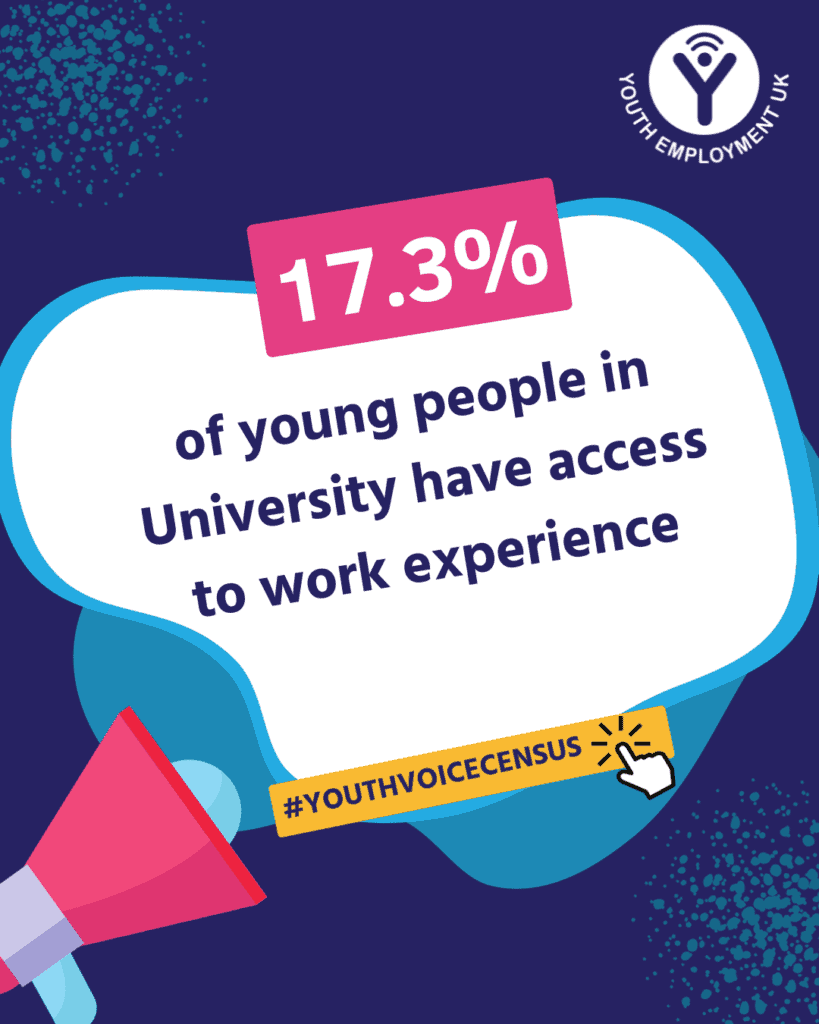What role does work experience play in the success of young people?

The results of Youth Employment UK’s annual Youth Voice Census launched in September 2023, and the full report speaks to the experiences young people aged 11 – 30 are having where they live, in education, employment and looking for work. Set across a complicated and challenging economic, political and environmental landscape, it fully explores the good, bad and ugly that young people are experiencing in 2023.
The key findings tell a story of young people feeling disconnected from their communities and of their fear that opportunities are so scarce that they are constantly in competition with each other. Young people feel left behind, particularly after hearing narratives of ‘catching up’ to pre-Covid levels but not having received the support or resources they need. The future feels uncertain and something that they feel wholly unprepared for.
For young people currently in secondary school, we see shoots of positivity. Young people are receiving more careers and employability activities in the classroom than in previous years, and they are more likely to agree this year that they feel that they are being prepared for their next steps. We see, too, the closest parity we ever have in young people hearing about apprenticeships and university as valued options.
We cannot ignore the disruption that the education system continues to face. 55.1% of young people in secondary school told us that their learning was disrupted ‘a lot’ or ‘a great deal’ in the last 12 months. Mental and physical health of young people and their teachers has played the biggest part in this disruption, alongside teaching and travel strikes.
Who is getting work experience?
The pandemic has changed many factors for how we live, work and study, but it has drastically altered access to work experience for young people and employers. Just 29.2% of young people in secondary school had access to work experience in the last 12 months, a worryingly low number and, despite an increase in all other careers and employability experiences in schools, an opportunity that continues to decrease year on year. What is worrying still is the proportion of young people who were offered work experience that then did not undertake it, only 52.3% of young people offered work experience were able to complete it. For most, being able to find a placement post-Covid was an issue, but young people also told us that they did not feel ready to look for or go on work experience.
Of those that had work experience, only 65% had one placement, with 20% of young people having had two experiences. Male respondents were most likely to have received work experience over other genders, with the continuing disparity seen in previous years in access for Black respondents and transgender respondents who were 10% less likely to have had work experience than their peers.
This unfairness manifests in other aspects of work experience, too. 51.6% of young people had someone support them to find their work experience placement. Those who had no support to find placements were most likely to have protected characteristics and disproportionately more likely to be Black, transgender or have been eligible for free school meals. We know too, that those with protected characteristics are worried most about their lack of networks and its impact on being able to find a good job in the future. The lack of additional support around these groups continues to compound issues in equity and equality of access. It is perhaps unsurprising then that these groups either miss out on work experience or end up in a placement that is not interesting to them.

What happens after secondary school?
The older you get and the closer you are to working age, the less work experience you receive, with just 17% of those in university having had any access to work experience. Coincidentally, young people’s confidence in their future and that they will be able to access quality work decreases as they age, too, from age 19 onwards, young people are less likely than their peers to think they will find a good job.

Why is it so important?
A lack of work experience has been featured in the top three barriers young people have to access work for the past six years. For those in education it was the biggest factor, 54.6% thought it would be the thing that holds them back from being successful when looking for work. Those looking for work feel constantly unsuccessful in their job hunt because work experience requirements are too high, and it is one of the biggest factors young people in work currently feel could have supported them to find better-suited employment faster.
Young people are quick to tell us that with support to find opportunities and to know how to make the most of them, work experience is not just a good thing for their CV and skill development but for their motivation and confidence too. They recognise that we have to think differently about work experience and gaining experiences of work, they want to see shorter, varied placements. Traditional week-long placements feel hard to acquire for young people and are difficult for employers to manage too. Young people see the value in having a number of opportunities to experience different types of jobs, working environments and departments across different years in education. We must support young people to find quality opportunities for work experience that are accessible to them, or we will continue to perpetuate cycles of inequality.
Lauren Mistry is Deputy CEO of Youth Employment UK and references the latest report using data collected from over 4,000 young people. You can read the full report here.